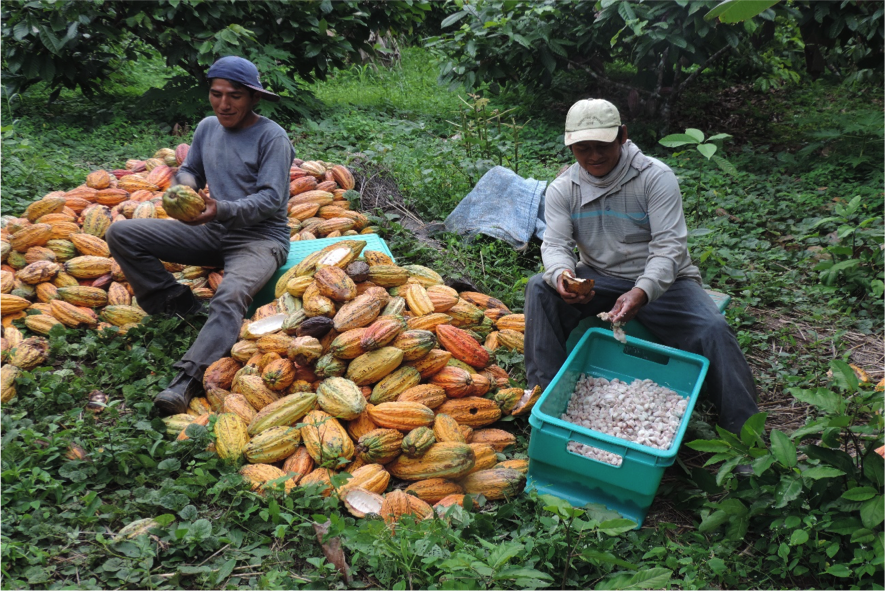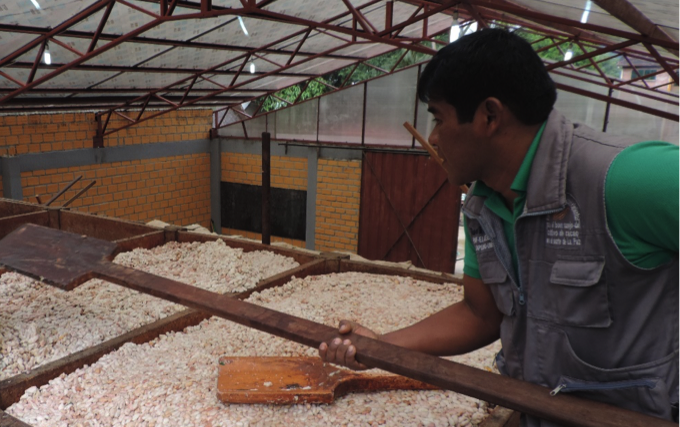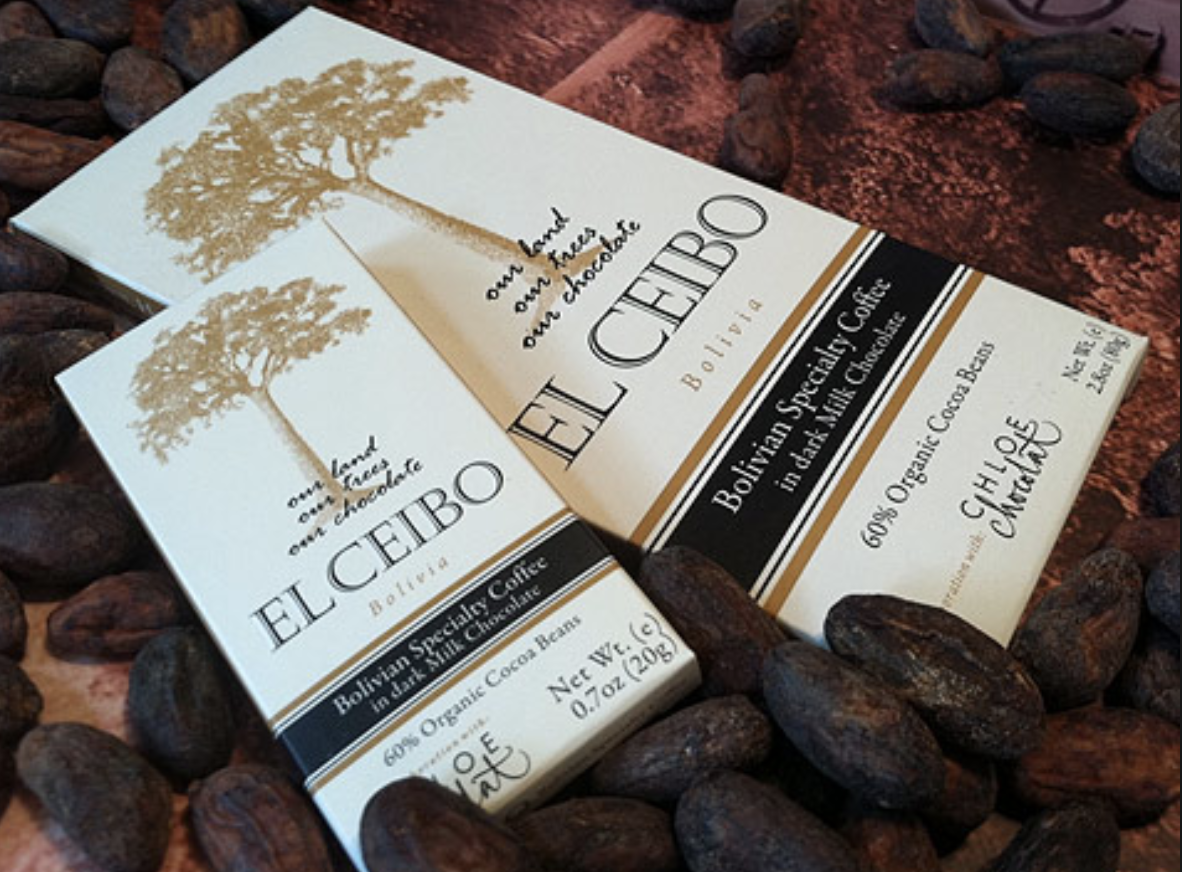A Bolivian chocolate made and marketed entirely by a co-op of local producers will be soon available to UK customers.
Founded in 1977, El Ceibo is a co-operative owned by over 1,200 families of farmers. It makes the chocolate from organic, Fairtrade-certified cocoa beans at the El Ceibo industrial plan in El Alto, La Paz, which is at an altitude of 4,061 meters above sea level.
The co-op’s distributer in the UK, Sandra Rice, who was born in Bolivia but now lives in the UK, says the altitude gives the chocolate a distinct flavour.

“Every Bolivian knows about chocolate,” she said. “I grew up knowing the chocolate El Ceibo produces is the best.”
While on holiday with her husband, she went on a tour of the co-op was impressed by its unique approach.
“It is like a big family, everyone knows each other,” she added. “The co-op collects all its cocoa from the farmers and then deals with all aspects related to marketing and distribution. The entire process is run by the co-op itself, which is governed by its members.”
El Ceibo sells hot chocolate, cocoa powder and chocolate bars. The bars also include specific Bolivian ingredients such as Uyuni salt and Andean royal quinoa.
Although there are challenges in bringing its products to the UK – notably high transport costs – Ms Rice chose to become its exclusive distributor “because we thought it was a great product.” She said: “It’s a successful story. It’s not the cheapest chocolate, but it’s the best.”
Sales manager, Michel Yucra Vargas, has been with El Ceibo since 2015. He comes from a family of co-operators, with his father a founder member of El Ceibo.
The co-op is named after the ceiba tree, which grows to 240ft. “Our philosophy is to be as resilient as the tree and continue to strive in spite of challenges,” said Mr Vargas.

The El Ceibo group comprises 47 co-ops and, because there is no need for intermediaries, it gives farmers a better price for their cocoa. They also get to elect representatives who govern and oversee the management of the business.
The group hosts three general assemblies a year, to which each co-op sends their president, vice president and one regular member, with preference given to women and young people.
El Ceibo operates across four different areas. One side of the business provides technical support to producers to ensure cocoa is 100% organic. Another agro-industrial body deals with producing commodities using the cocoa collected from farmers. A commercial centre is in charge of distribution and marketing, while a micro finance entity is there to provide loans to farmer members.
The co-op structure has meant farmers are offered support during difficult times – such as 2014 when the Monilia fungus affected crops, bringing the lowest production level in El Ceibo’s history with only 500 tonnes of cocoa generated. The co-op intervened, helping farmers find organic solutions to tackle the fungus. This year they expect to produce 1,800 tonnes of cocoa.
Another challenge for El Ceibo is to appeal to younger members as well.
“I am the son of a founding member,” said Mr Vargas, “but young people like me think more about themselves, they do not want to be involved in the organisation. That is why we organise workshops about co-operation, leadership and accounting, to promote the co-op model.”
Cocoa trees take between three and five years to yield a crop. The new generation is keen to try harvesting other plants but the founding members do not want this.
“They want to continue to be a co-op that produces 100% organic cocoa,” added Mr Vargas.

In the early days, the co-op was exporting all of its produce. Exports continued to account for the majority of sales until 2010 when more products were sold nationally than internationally.
Currently, around 70% of products go to the internal market with only 30% being exported. Countries buying from El Ceibo include Germany, Italy, Austria and the USA. The co-op has recently launched a UK version of its website, where it will sell its gourmet chocolate line.

